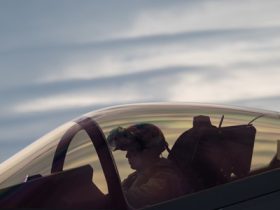The likelihood is dwindling that two Space Force launch missions slated to fly on United Launch Alliance’s new Vulcan rocket will fly before the end of the year as scheduled, according a top space acquisition official.
The rocket conducted its second launch in October, which was meant to pave the way for approval from the Space Force to fly military missions. However, the service and the company are still reviewing data from the flight and the official certification may still be weeks away, according to the Space Force.
Meanwhile, two Space Force satellites are awaiting the green light on Vulcan in order to get off the ground. One of those missions, USSF-106, includes an experimental spacecraft called Navigation Technology Satellite-3 that will demonstrate capabilities to augment the service’s GPS constellation. The satellite, built by L3Harris, was originally slated to launch in 2022.
The second mission, USSF-87, is a classified Space Force launch.
Lt. Gen. Philip Garrant, who leads Space Systems Command, told reporters Thursday that while he’s confident Vulcan will be certified, the current timeline leaves little room for the company to launch both missions before year’s end.
“I will say that with only six weeks to go, we are getting challenged to be able to launch this year,” Garrant said during a Defense Writer’s Group event in Washington.
Asked how much margin remains, he answered “probably not much.”
ULA is co-owned by Lockheed Martin and Boeing. Along with Elon Musk’s SpaceX, it’s one of two companies with rockets cleared to fly national security space missions for DOD and the intelligence community. The company is in the process of replacing its legacy Atlas V and Delta IV vehicles — longtime workhorse rockets for the U.S. government — with the more powerful Vulcan.
That process requires ULA to complete two certification flights of its new rocket, the first of which went off without a hitch in January.
ULA CEO Tory Bruno told reporters prior to Vulcan’s second launch in October that if the mission was clean, the company could complete the required data analysis within weeks and would expect to achieve military certification soon after. While the flight was deemed nominal and the rocket successfully delivered its payload, an issue with one of Vulcan’s solid rocket boosters has required additional review.
The company and the service are working together to analyze flight data and have formed a combined team to investigate the anomaly, ULA and Space Systems Command told Defense News.
“The combined team is continuing to make progress on establishing root cause and identifying corrective actions,” the Space Systems Command spokesman said, adding that the Space Force is in the final stages of the engineering reviews and expects to certify Vulcan in the coming weeks.
Along with the two satellites currently on hold, the rocket’s delay has stalled the launch of multiple GPS III satellites, which were manifested to fly on Vulcan. The satellites, built by Lockheed Martin, are in storage until the rocket is certified.
Garrant said that because the current GPS constellation is healthy, keeping those satellites on the ground hasn’t caused problems for military users. However, the service is working to determine whether some GPS III missions slated to fly later on SpaceX rockets could be rescheduled to earlier dates.
“We’re certainly looking at options to go faster,” he said.
Courtney Albon is C4ISRNET’s space and emerging technology reporter. She has covered the U.S. military since 2012, with a focus on the Air Force and Space Force. She has reported on some of the Defense Department’s most significant acquisition, budget and policy challenges.
Read the full article here








Leave a Reply